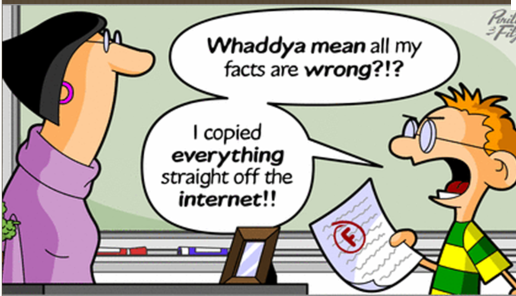OUASSA 2017 students have been working towards a presentation to the public at the Otago Museum which will take place on July 14th. The research for their presentations are in full swing and things should be starting to come together for their presentations. Some recent experiences have reminded me of the importance not only of researching your topic, but of evaluating the information that you find.
Evaluating the information you find is especially important when researching topics that are emotional or controversial, where people are inclined to have opinions based on anecdotal evidence from the world around them. Many of the topics that are being researched for presentations in July fall into this category. People feel very strongly about topics like Climate Change, Genetic Modification and Medicine in the Third World. It is important in a presentation to the public that you are presenting the science behind the issue and relying on provable facts rather than popular (or unpopular) opinion.
The internet is a great place for research because you can very quickly find a lot of information. The downside though is that unlike a book or a research publication, anyone can put information on the internet without any verification that it is actually true, and present it as fact.
For that reason, it is very important when you are researching to make sure that you evaluate the sources that you are using. Although after researching, you may have formed a personal opinion on the issue, it is important that when researching, you are looking at unbiased information based on fact (or at least that you are conscious of the bias and are looking at the information with that in mind).
The library have produced a nice little reference for evaluating internet sources using the acronym BAD URL. You can find a copy here. How_to_Evaluate_Websites
If you want to really dig deeply into how to evaluate sources, this is an e-learning module produced by the University library designed to help you learn about different types of information sources and how to evaluate them.
In July, the students will be having a presentation on “What your brain does when you’re not looking.” Unconsciously, we all are influenced by our bias and frame the world through our own experiences. It is important to make sure we are aware of this and do as much as possible to limit bias in our work and promote impartiality.






Recent Comments